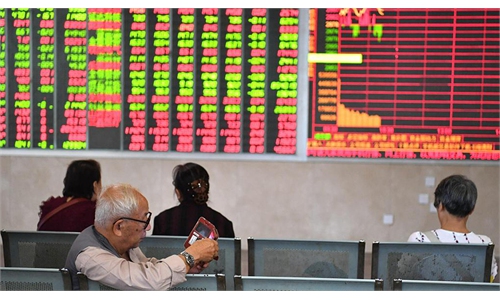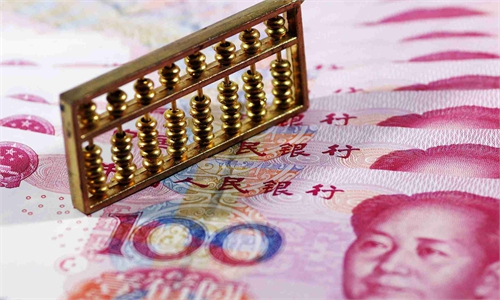
A-share Photo: VCG
China's stock market saw considerable capital inflows in April, even as stock markets in other emerging economies saw major outflows due to the US' interest rate hikes and other factors, underscoring the persistent attractiveness of the Chinese capital market to foreign investors despite recent volatility, according to industry data and analysts.
Emerging market debt and equity portfolios saw foreign investor outflows of $4 billion in April, a decline compared with outflows of $7.8 billion in March, data from the Institute of International Finance (IIF) showed on Tuesday.
In April, emerging markets saw an outflow of $9.5 billion from their stock markets, and an inflow of $5.5 billion from their bond markets. But the Chinese stock market bucked the trend and attracted $1 billion in capital inflows.
The US Federal Reserve's interest rate hikes to tamp down high domestic inflation have triggered capital flight from developing markets, which is a natural consequence, said Yang Delong, chief economist at Shenzhen-based First Seafront Fund Management Co.
But "compared with other emerging markets, Chinese equities remain attractive for foreign investors thanks to low valuations and high quality, thanks to the country's robust economic resilience, although the stock market has been temporarily affected due to multiple factors," Yang told the Global Times on Wednesday, adding that won't change the market's positive outlook.
So far this year, long-term funds have maintained net inflows into the Chinese market, and there have been no major changes in foreign capital flows and transactions recently, Wang Jianjun, vice chairman of the China Securities Regulatory Commission (CSRC), said on Tuesday.
Foreign capital recorded net inflows worth 16.78 billion yuan ($2.5 billion) in January and 3.98 billion yuan in February, and then a net outflow of 45.08 billion yuan in March due to the uncertainties brought by the Russia-Ukraine conflict and wide market expectations of Fed rate hikes, data from financial data provider Wind showed.
Most domestic investment banks were not pessimistic about the future market performance. According to a research note from CITIC Securities, the high point of domestic COVID-19 flare-ups has passed, and external pressure has gradually eased. With the steady pace of production resumption and support policies in place, a medium-term recovery that could last for several months is expected to begin this month.
Yang said that China's A-share market is likely to attract foreign capital of more than 300 billion yuan this year despite challenges ahead.
Last year, the A-share market saw a net inflow of foreign capital, totaling 384.6 billion yuan, the highest in the past five years, data from the CSRC showed.
Global Times



